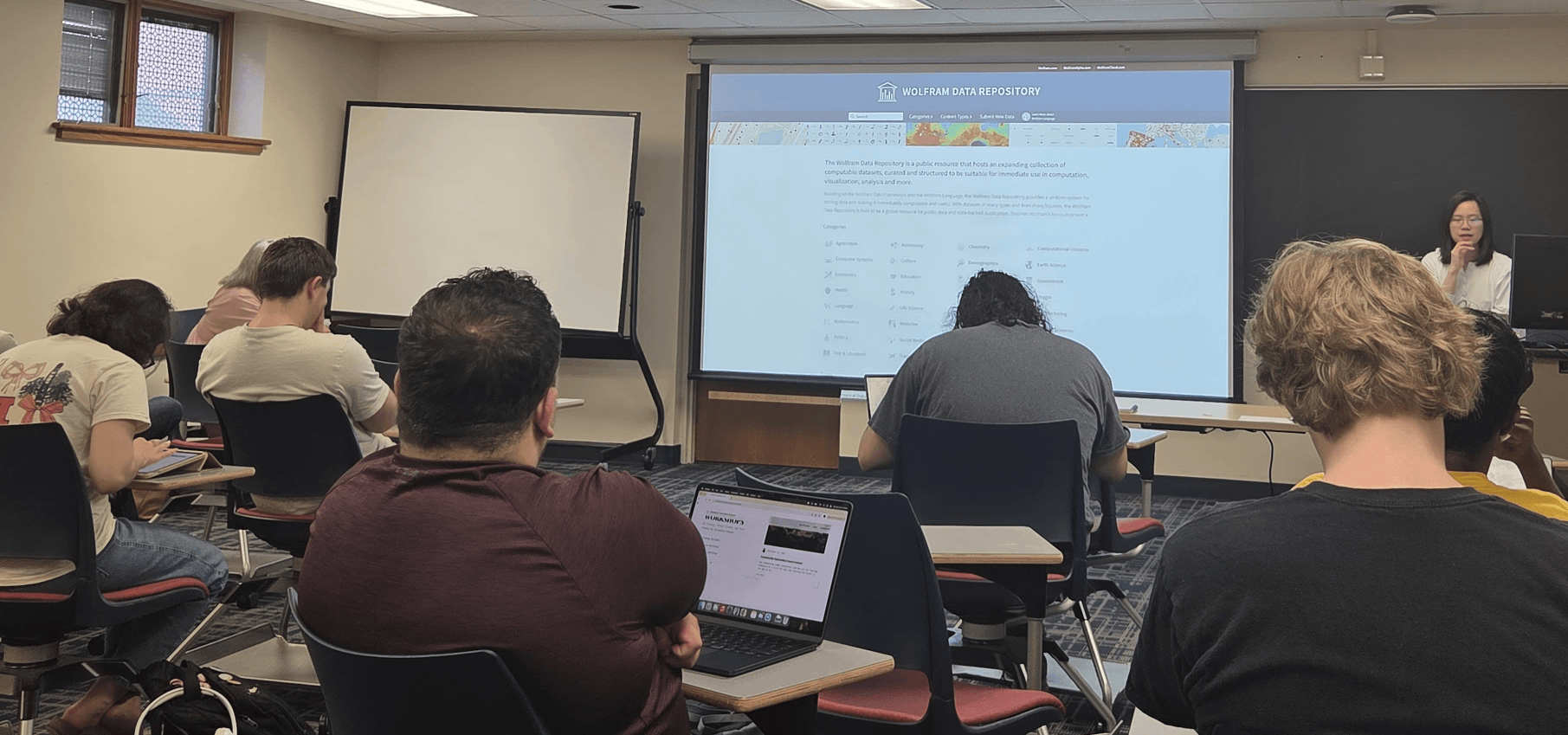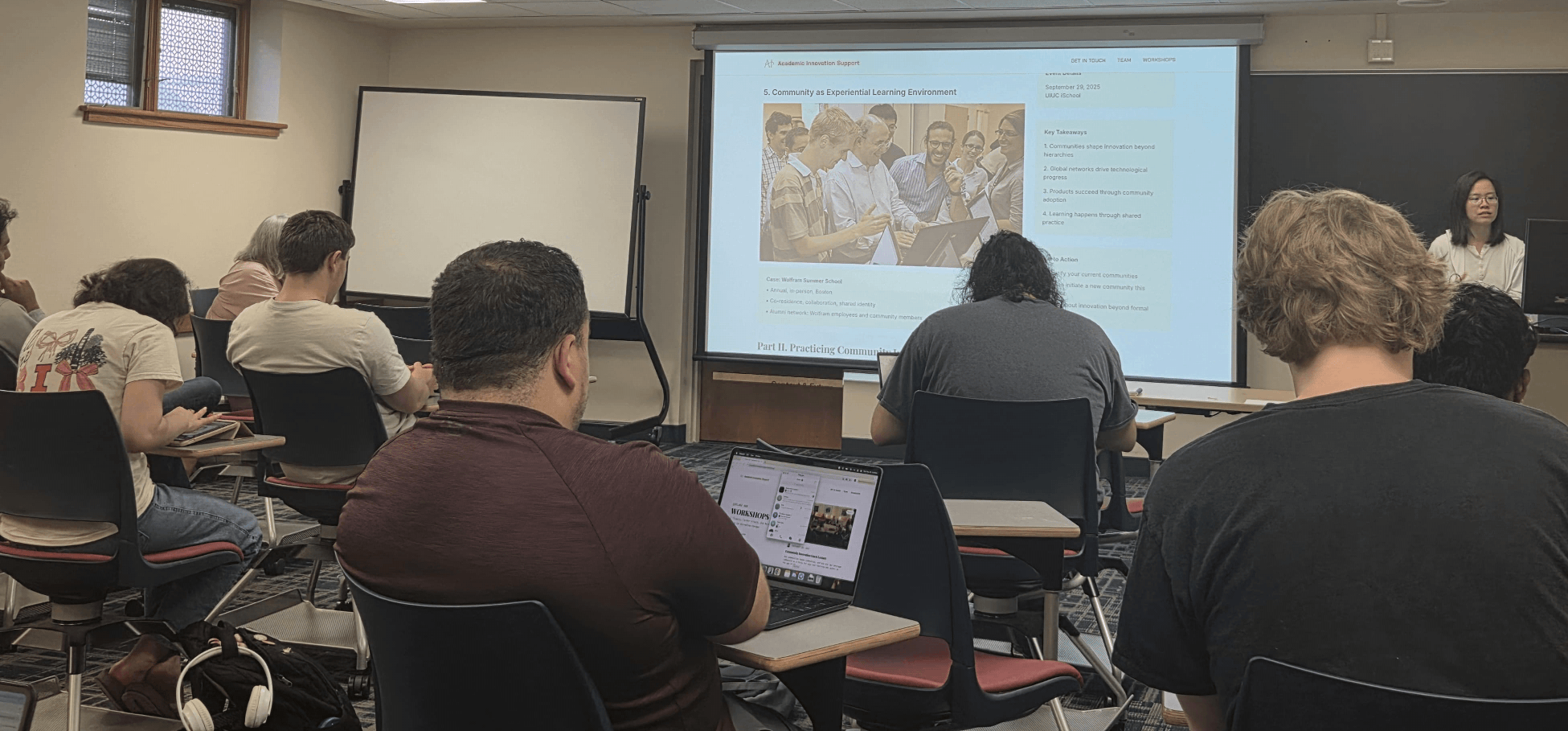Academic Innovation Support presents at UIUC iSchool on
Community and Innovation Guest Lecture
Community and Innovation
Guest Lecture on Sept 29
Part I. Understanding Community
1. Opening Frame: What Is "Community"?
- • Community is not just a group of people.
- • It's shared meanings, rituals, values, and practices that generate belonging — and sometimes, exclusion.
- • Hierarchy vs. Community:
- - Hierarchies privilege titles, institutions, and rules.
- - Communities privilege lived experience, trust, and circulation of practice.
Provocation: How do communities, rather than hierarchies, shape innovation in technology?
2. Community and the Founding of Wolfram Research
History:
- • 1986–1988: Stephen Wolfram at UIUC (Physics, Math, CS)
- • Founded the Center for Complex Systems Research
- • Founded Wolfram Research in 1987
"In my life now, where I am a CEO of a company, the actual fraction of my time that I can get to devote to basic science thinking is probably much larger than the fraction of time that a typical senior professor at a university would get."
- 1996 interview
3. Community as a Global Force in Innovation

Context: Wolfram Research grew during the collapse of the Soviet Union.
Community Migration: Many mathematicians from Eastern Europe moved to the U.S. — including Wolfram's later chief scientist of Wolfram|Alpha, from East Germany.
4. Community as a Carrier of Products
Case: Wolfram|Alpha
- • Minimal marketing
- • Spread through peer-to-peer circulation
- • Communities of practice as "marketing department"
5. Community as Experiential Learning Environment

Case: Wolfram Summer School
- • Annual, in-person, Boston
- • Co-residence, collaboration, shared identity
- • Alumni network: Wolfram employees and community members
Part II. Practicing Community Innovation as Students
Context & Future
- • From Past to Present: Communities shaped Wolfram's history
- • Future Context: AI and LLMs reshaping work
- • Provocation: How to use community for innovation and resilience?
1. Community as an Alternative to Hierarchy
- • Don't wait for formal programs
- • Join or start informal initiatives
- • Cross boundaries between disciplines
2. Community as a Response to Economic Contraction
- • Volunteer in local organizations
- • Build public portfolios
- • Join open-source projects
3. Community as Innovation of the Self
- • Innovation in learning methods
- • Community as personal laboratory
- • Unconventional learning paths
4. Community as Informal Networks
- • Build peer networks
- • Share resources and feedback
- • Create distributed learning systems
Event Details
September 29, 2025
UIUC iSchool
Key Takeaways
- 1. Communities shape innovation beyond hierarchies
- 2. Global networks drive technological progress
- 3. Products succeed through community adoption
- 4. Learning happens through shared practice
Call to Action
- • Identify your current communities
- • Plan to initiate a new community this semester
- • Think about innovation beyond formal structures